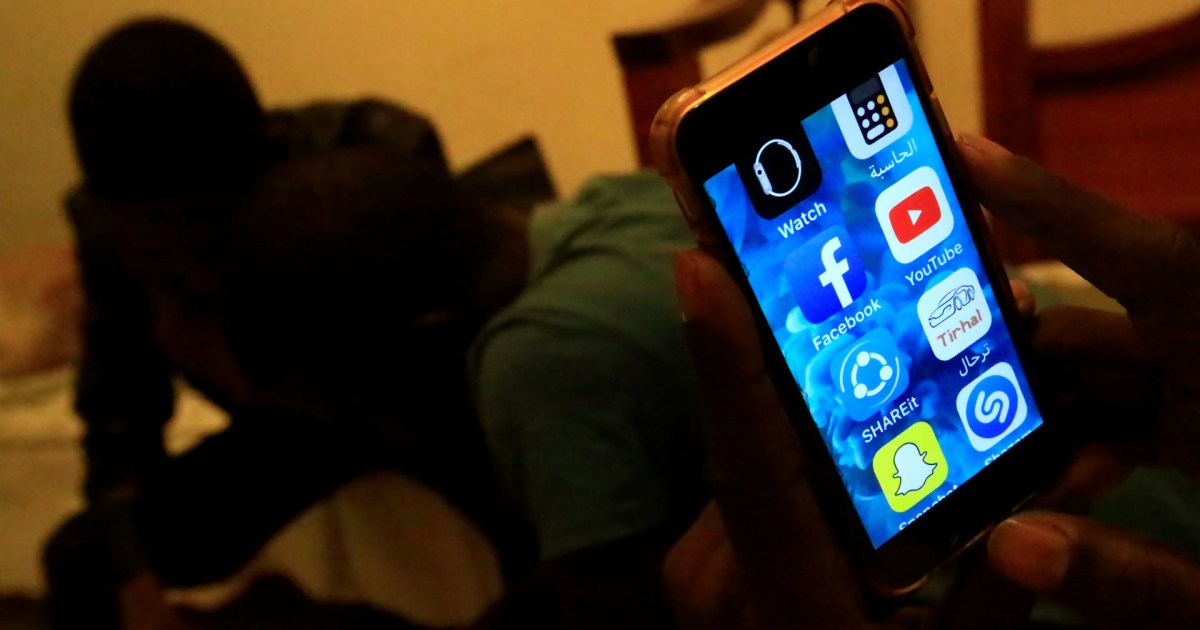Facebook said it shut down two large networks targeting users of its platform in Sudan in the past few months.
This comes amid rising tensions between the civilian and military components of the transitional government over the future of power-sharing arrangements.
David Agranovic, director of countering threats at Facebook, told Reuters that one of the two deleted networks, which contained fake accounts, was linked to the Rapid Support Forces of the Sudanese army, while the other included people that researchers hired by the Khartoum government said were supporters of ousted President Omar al-Bashir, who They instigate the army's seizure of power.
Hundreds of protesters have held a sit-in these days at the presidential palace, calling for the army to dissolve the government.
Quick Support Link
Earlier this month, Facebook said it had shut down a network of nearly 1,000 accounts and Pages with 1.1 million followers, run by people the company said were linked to the Rapid Support Forces.
The network supported the official media publications of the Rapid Support Forces and other content related to these forces, led by Mohamed Hamdan Diglo (Hemedti), the deputy head of Sudan's ruling Sovereign Council, which some Sudanese see as having political ambitions.
Representatives of the Rapid Support Forces and Dagalo did not respond to Reuters requests for comment, and the government had no comment.
In light of the increasing polarization in Sudan, the application of unoriginal coordinated tactics in the Sudanese cyberspace by several actors, including networks loyal to the National Congress Party, increased with it.
During the past months, Facebook closed a number of them.. Report on the closure 👇🏻 @Reuters https://t.co/16KZRdoJ6C
— Zouhir Al-Shimale (@ZouhirAlShimale) October 19, 2021
Facebook said it also took down a second network last June after receiving information from Valent Projects, an independent research firm tasked by Sudan's Ministry of Information to look into activity linked to loyalists of ousted President Omar al-Bashir.
Facebook indicated that the network had more than a hundred accounts and pages and had more than 1.8 million followers.
loyal to the ousted president
The Sudanese government's efforts to fight what it describes as loyalists of the former regime and who are working to undermine the transitional period have not been reported previously.
The Sudanese Ministry of Information said in a statement to Reuters that "the remnants of the Bashir regime are systematically distorting the image of the government," referring to posts on the network's social networking sites identified by Valent Projects.
According to Facebook and some independent researchers, the two networks' posts were mimicking news media, but providing distorted coverage of political events.
Representatives of "Valent Projects" stated that the network was active until this week, and was inciting a military movement with protesters gathering in central Khartoum. ".
Some of the network's publications say that Sudanese Prime Minister Abdullah Hamdok is not a Muslim, and that his team of employees receives their salaries in dollars, a charge they deny.
It should be noted that 30% of Sudan's population - amounting to 40 million - uses the Internet, and in the face of the weakness of traditional media, social media is a major source of news, and in the absence of audit mechanisms, fake news finds a fertile ground for its spread.

